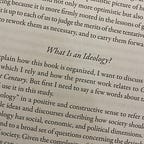For 23/24 academic enrollment , I have applied to a few universities via UCAS and have been offered a place for BSc Economics , Finance and Data Science at Imperial College London and a few other universities.
If I could alter my written statement, I would have changed the topic to a more recent and not based my statement on the past successful candidates regarding the three component of the degree I'm applying to. My personal statement is shown below :
What is freedom?’ I questioned myself while volunteering at the Malaysia Future Leader School Association. The capitalist dream has long been believed as one that best provides freedom. However, with increasing wealth disparities between social groups and genders among countries advocating for such a system, economists have questioned the validity of such claims. Alternative systems show similar flaws: inequality and inability to manage the globalizing market. With the fading Ricardian dream, I become ever more intrigued in exploring coherent thoughts and solutions on the subject of the economy.
To understand wealth inequality, I read ‘Poor Economics’ by Banerjee and Duflo. They proposed a solution in the form of a microcredit system to make them more available to the poor. Duflo showed that the relation between the economy’s capacity curve and an increase in the level of education would improve a family’s future income, breaking the cycle of the intergenerational poverty trap. In theory, reducing liquidity constraints will increase the inclusiveness of education to the poor, making their solution viable. Furthermore, education changes the social structure, increasing the average income with higher educational attainment, but it led me to question how it has impacted Malaysia’s economy.
Competing in the final round of the Economic Leadership Forum Case Study competition led me to the Mincerian earnings function in evaluating the practical effectiveness of education. After solving its heteroscedastic nature, the data from Household Income Survey indicates a decrease in private return on education and a significant difference between ethnicities and genders’ returns in education in Malaysia. This illustrates the weakness in Malaysia’s education system; the quota system, for example, has neglected merits at the cost of potential contributive human capital. While education is an essential factor in alleviating one’s economic status, I think creating a more effective and inclusive education system is vital in achieving balanced and equitable socio-economic growth. Policy debates, nevertheless, should not just be on narrow ethnic-centric education issues but also gender discrimination.
Furthering my research, I was intrigued by the biggest economic powerhouses and their co-dependency to tackle the instability of their country’s economy — which has led to great poverty down the road. Like Bernanke, I became fascinated by the differential calculus in economics, such as deriving the first-order conditions of a Lagrangian and using it to form the production function. Exploring the beauty of linear algebra, I learned its relation to probability theory and the Black Scholes Model in estimating the theoretical value of derivatives based on investments. However, I am aware that my understanding in the art of mathematical economics is limited. Therefore, delving deeper into this field is something I anticipate strongly.
To me, a data-driven approach is essential in policy-making. As the president of one of the student bodies in my school, I used a data-based solution in creating an application system that tracks the time of outing and a record of students’ merits. This approach allowed my school to determine the best time for outings and students with the most performing merits. Undoubtedly, the use of econometrics analysis is fundamental in making decisions, to be equipped with tools like Randomized Control Trials; I am eager to build a thorough understanding of analysis similar to Banerjee in measuring the effectiveness of policies.
I greatly value a socially just economy that advocates low Gini-coefficient growth. Aside from the thrill of exploring concepts and rigorous theoretical frameworks, I believe this degree will allow me to achieve my aspiration by applying the boundless potential of mathematics and data in solving inequality in Malaysia.
Finishing off, I want to suggest fellow readers to go to a website that I use to refer on writing my personal statement that is and good luck!!
